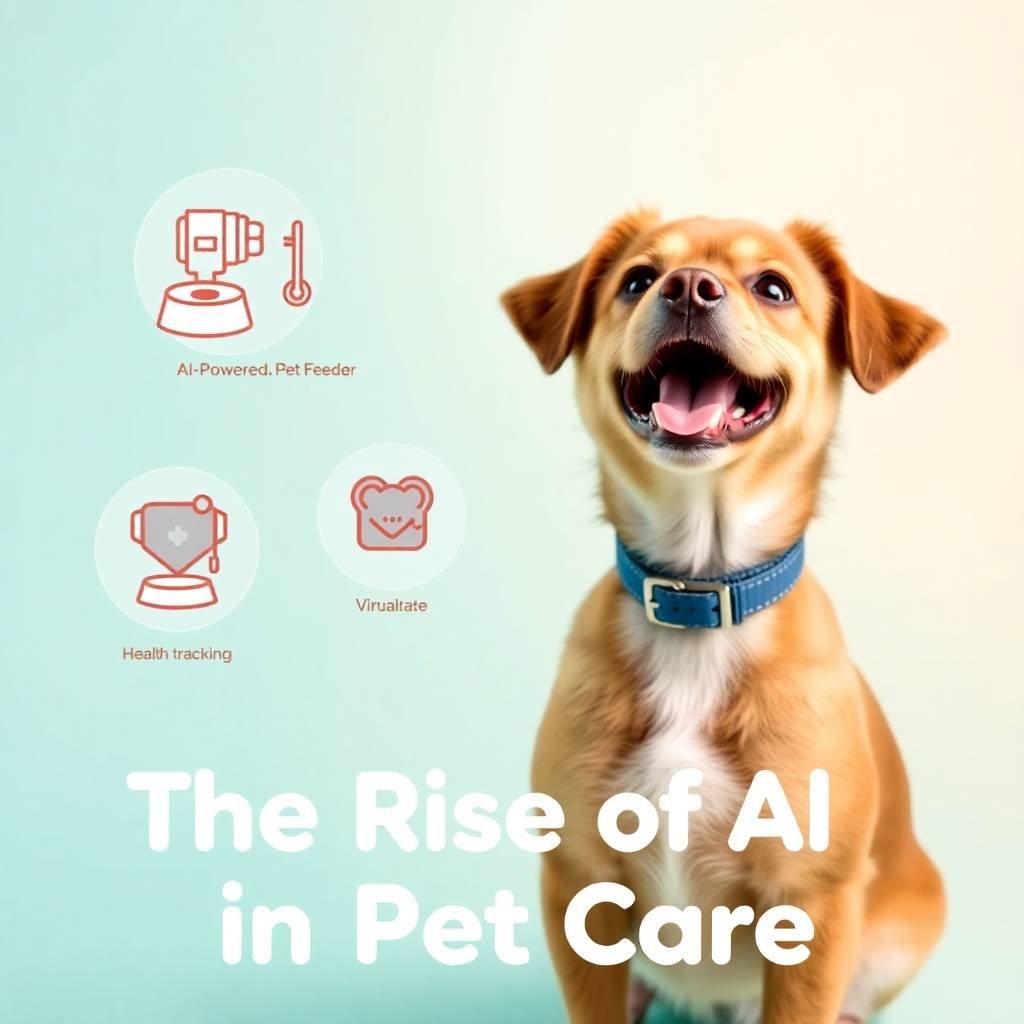Introduction
The pet care industry is undergoing a significant transformation as technology continues to advance. Artificial Intelligence (AI) is at the forefront of this change, offering innovative solutions that cater to the growing demand for enhanced pet health and well-being. From smart feeding systems to health monitoring devices, AI is reshaping how pet owners care for their furry companions.
Current Applications of AI in Pet Care
Smart Feeding Systems
AI-powered smart feeding systems are transforming how pet owners manage their pets’ nutrition. These systems can dispense food at scheduled times or adjust portions automatically by analyzing the pet’s activity levels and dietary needs. By ensuring that pets receive the right amount of food tailored to their specific health requirements, AI helps maintain optimal health and weight management.
Health Monitoring Devices
AI-driven health monitoring devices, such as smart collars and wearable sensors, are gaining popularity among pet owners. These devices track vital signs, activity levels, and sleep patterns in real-time, providing valuable insights into a pet’s overall health. By enabling early detection of potential health issues, these AI tools allow for timely intervention and better management of pet health.
Benefits of AI in Pet Care
Enhanced Health and Well-being
AI technologies offer personalized care solutions that significantly enhance the health and well-being of pets. By continuously monitoring vital health metrics and providing tailored recommendations, AI helps prevent illnesses and supports a higher quality of life for pets. This proactive approach ensures that pets receive the care they need to thrive.
Convenience and Peace of Mind
AI simplifies pet care by automating routine tasks like feeding and health monitoring. This automation provides pet owners with the convenience of managing their pets’ needs more efficiently, even when they are not at home. Knowing that their pets are receiving optimal care brings peace of mind to pet owners, enhancing the bond between them and their furry friends.
Challenges and Considerations
Data Privacy and Security
The integration of AI in pet care involves the collection and analysis of personal data, raising concerns about privacy and security. Companies must ensure that their AI systems comply with data protection regulations and implement robust security measures to safeguard user information. Transparency about data use is also essential to build trust with pet owners.
Technology Adoption
While AI offers numerous benefits, some pet owners may be hesitant to adopt new technologies due to skepticism or lack of familiarity. To encourage widespread acceptance, it’s important to demonstrate the value of AI-driven solutions in enhancing pet care. Providing education and support can help bridge the gap between technology and users, facilitating smoother adoption into everyday routines.
The Future of AI in Pet Care
The future of AI in pet care promises exciting advancements, with potential innovations such as advanced behavioral analysis tools for training and AI-driven telemedicine services for remote veterinary consultations. These technologies will allow pet owners to better understand and meet their pets’ needs, enhancing both health and happiness.
As AI continues to evolve, it will likely play an increasingly central role in pet care, offering more sophisticated solutions that improve the lives of pets and their owners. From AI-driven diagnostics to personalized wellness plans, the integration of AI into pet care is set to revolutionize the industry, fostering stronger human-animal bonds.
Conclusion
AI is rapidly transforming the pet care industry, providing innovative solutions that enhance health, convenience, and engagement. While challenges remain, particularly in terms of data privacy and technology adoption, the potential benefits of AI in pet care are substantial. As technology advances, embracing AI will be essential for pet owners and care providers seeking to improve the lives of pets and ensure they receive the best possible care.

